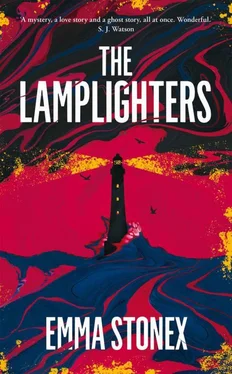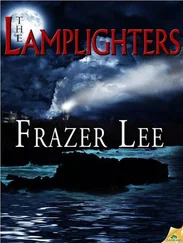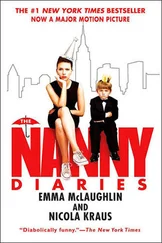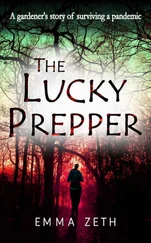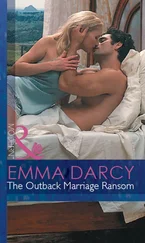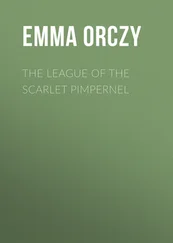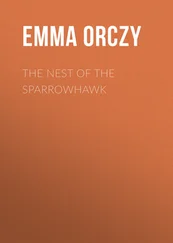Oh, right, there’s the door. That’s my man come to fix the TV.
Is that everything? You’ll have to come back if it isn’t. I can’t have you staying because it makes me nervous having two things going on at once, and I need to give my attention to the TV man now. I hope he can fix it because Come Dancing ’s on tonight. I really hate not being able to see things properly.
HELEN
Every summer she made the pilgrimage, on his birthday or thereabouts. She left the dog with a friend and went by train to the nearest station, half an hour or so from the coast, and by taxi the rest of the way. Nothing much changed; nothing was different. Though the business of life went on across its surface, the earth beneath moved slowly. Waves rolled to shore, forever and ever, patiently; the leaves of the beech trees wafted like a Chinese fan.
Helen turned off the high street and walked up the lane. Midges hovered in trembling clouds and the scent of cow parsley rose ripe and heat-soaked from the busy hedgerow. Warm shadows leaned across her path; an orange sun divided by the dark stems of trees. She passed the sign for Mortehaven Cemetery. Crumbling headstones sloped from their rows, staggering down towards the lip of the promontory, beyond which the sea shot far and wide in a dazzling celebration of blue.
There had never been a grave. A bench on the headland bore the inscription:
ARTHUR BLACK, WILLIAM WALKER, VINCENT BOURNE
HUSBANDS, FATHERS, BROTHERS, SONS – BELOVED, ALL
‘BRIGHTLY BEAMS OUR FATHER’S MERCY
FROM HIS LIGHTHOUSE EVERMORE’
Many times, she had heard Arthur sing that sea shanty. Sitting on the rim of the bath, the tune fluting out of the steam; humming it at the basin while soaping his face or in the kitchen grilling rashers of bacon, hacking a loaf of bread into slabs that could stop a door slamming. ‘ Let the lower lights be burning, Send a gleam across the wave. ’ He’d come home smelling of seaweed and sit in his chair eating chips soaked in Sarson’s from a nest of greasy paper, his hands large and cracked like terracotta pots, with halos round the nails. Arthur caught whole fish with his fingers – or did he? There’d been magic in him: sea magic, half-man, half born in the brine. She hadn’t known at first that she would marry him. It wasn’t until he had taken her out on a boat on the water that she had looked at him and known. She’d just known. He was different out there. It was hard to explain. Everything about him made sense.
A fingerpost pointed TO THE LIGHTHOUSE COMPOUND, beyond which the winding lane narrowed, overtaken by greenery, bursting from the verges in jumbles of primrose and nettle. Further on, after a climb, the Maiden Rock appeared for the first time.
The tower shimmered on a cobalt sea, a line as clean as a pen mark. A handful of lighthouse enthusiasts might come this way during summer, Helen thought; they’d get to this point, their legs grazed by blackthorn and dog-violet, and admire the lighthouse from afar, a silver streak on a silver mirror – before turning back, tired and thirsting for cool drinks, and they’d have no need to think of her ever again.
Into the dappled glade of the ongoing track, the sign on a metal gate read: MAIDEN ROCK LIGHTHOUSE: NO PUBLIC ACCESS.
They were holiday lets now, only tenants allowed. The track was too tight and twisting even for rubbish collection; instead, plastic bins were clustered by the gate with numbers streaked on in white paint.
It was here that Helen expected to see him, every year, walking towards her. Perhaps there would be another with him, two shapes, their hands raised, and she would raise hers in return. She had to hope that was what happened: that people who belonged with each other found their way back in the end.
III

1972
ARTHUR
Ships and Stars
The time I think of you the most is when the sun comes up. The moment before, the minute or two, when night yawns for morning and the sea starts to separate from the sky. Day after day the sun comes back. I don’t know why. I’ve had my light safe here, shining through the dark and I’ll keep it shining; the sun needn’t bother today. But still he comes and still come my thoughts of you. Where you are and what you are doing. Even though I’m not a man who thinks about things like this, it’s now, in this moment, that I do. A man alone through the lonely hours, I nearly believe that because the sun keeps rising, and because I extinguish my light dawn after dawn as soon as it’s no longer needed, you might be there when I go downstairs. You’ll be sitting at the table with one of the others, older, perhaps, than when I last saw you, or maybe the same.
Eighteen days on the tower
Hours turn into nights turn into dawns turn into weeks, and on and on the wide sea rolls and the sting rain beats and the sun shines into evening, morning, conversations in the half-light, the never-light, conversations that never happened or are happening now.
‘ Mastermind was on again,’ says Bill in the kitchen, fag in his mouth, hunched over his seashells. Every keeper needs a hobby, I told him when he started, and more’s the better if it calls for useful workmanship, a pursuit you can go at day after day until it’s perfect. An old PK I worked under taught me how to make a schooner and put it in a bottle. Personally I found it nit-picky, having to glue the sails just so. It took weeks of prep before I could slide it in and pull the rigging, and if I’d glued a whisker out of place the whole lot was wrecked. Loneliness pushes a man to his standards. I know this because I’ve been on the Maiden twenty-odd years and Bill’s done it for two.
‘Anything good?’
‘Crusades,’ he says. ‘ Thunderbirds .’
‘You should have a go.’
‘With what?’
‘Whatever it is you know about.’
Bill blows his shell carving and sets it aside, then leans back in his chair with his arms behind his head. My Assistant has a studious, timid look, his hair lopped close round his ears, his features small and precise: if you saw him ashore, you’d think him an accountant. Smoke travels up his nostrils and escapes in twin jets from the corners of his mouth, where it joins the ghostly haze of whoever was puffing away in here last.
‘I know about a lot of things,’ he says, ‘but not enough about any one of them.’
‘You know about the sea.’
‘It needs to be specific, doesn’t it. You can’t just say to that old bastard Magnusson, ask me about the sea. It’s too big a topic, they’d never allow it.’
‘All right then, the lights.’
‘Don’t be a prick; you can’t have a specialist subject on your own job. Name: Bill Walker. Occupation: lighthouse keeper. Subject: lighthouse-keeping.’
He stubs out his Embassy, lights another. Given how cold it is this time of year, we have to keep the windows fastened, and seeing as this is where we do all our cooking and smoking, and all our smoking cooking, it’s heading for a proper fug-up.
‘Looking forward to having Vince back?’ I ask.
Bill expels air through his nose. ‘Can’t say I’m fussed either way.’
I take his mug and switch on the kettle. Out here our days and nights are organized by cups of tea – especially this time of year, December, heart of winter, when it gets light so late and dark so early and always so numbingly cold. Waking at four for my morning watch, back to bed after lunch, waking again later on, the curtains drawn, the afternoon gone. Is it today, tomorrow, next week, how long have I been sleeping?
Читать дальше
